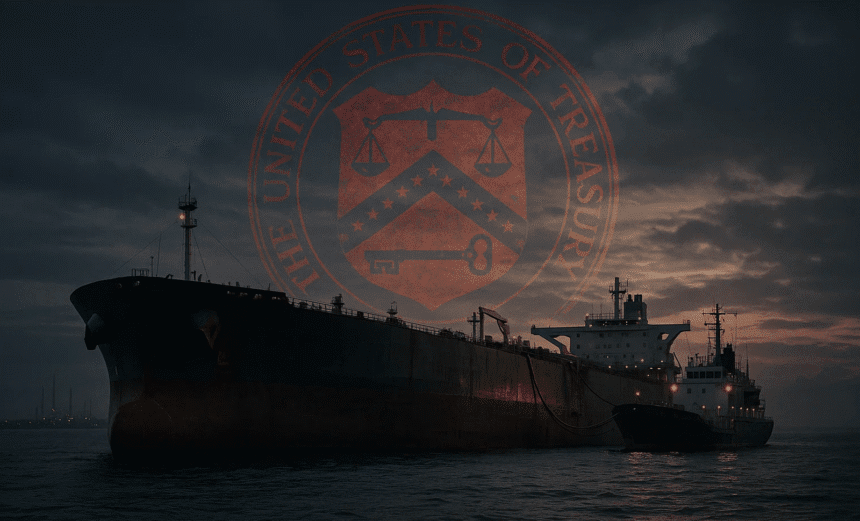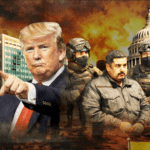The United States has intensified pressure on Iran by sanctioning a network of shipping companies and vessels accused of smuggling Iranian oil disguised as Iraqi crude. This move comes as nuclear negotiations remain stalled, highlighting the U.S. administration’s ongoing strategy to curb Iran’s revenue streams amid concerns over its nuclear program and regional influence.
On September 3rd, the U.S. Treasury Department announced sanctions targeting a network run by an Iraqi-Kittitian businessman based in the United Arab Emirates. According to the Treasury, the network covertly blends Iranian oil with Iraqi oil, marketing it solely as Iraqi in an attempt to evade international sanctions. Treasury Secretary Scott Bessent emphasized the significance of the action, stating, “By targeting Iran’s oil revenue stream, Treasury will further degrade the regime’s ability to carry out attacks against the United States and its allies.” He added that the U.S. remains committed to maintaining an oil supply free from Iranian influence and will continue efforts to disrupt Tehran’s attempts to avoid sanctions.
The network’s operations involve multiple entities and vessels, including Babylon Navigation DMCC, a UAE-based company run by the businessman, and several Liberia-flagged tankers such as the Adena, Liliana, and Camilla. These tankers reportedly assisted in blending Iranian and Iraqi oil at sea through ship-to-ship transfers in the Arabian Gulf and at Iraqi ports. Additional companies based in the Marshall Islands, including Tryfo Navigation, Keely Shiptrade Limited, Odiar Management S.A., Panarea Marine S.A., and Topsail Shipholding Inc., were also sanctioned for serving as registered owners of the vessels, likely to obscure the businessman’s ownership.
The sanctions come amid a tense diplomatic backdrop. A sixth round of nuclear negotiations was suspended following a 12-day conflict in June, leaving discussions at an impasse. While a senior Iranian official indicated that the path to diplomacy is not entirely closed, U.S. demands for limits on Iran’s missile program continue to obstruct prospects for renewed talks.
The Trump administration has consistently relied on sanctions as a tool to pressure Iran, particularly targeting revenue streams that could finance its nuclear ambitions or destabilizing activities in the Middle East. By disrupting this oil smuggling network, the U.S. aims to further limit Tehran’s financial resources while signaling its resolve to allies and adversaries alike.
Iran’s mission to the United Nations in New York did not immediately respond to a request for comment on the sanctions. Analysts note that such economic measures are part of a broader strategy to compel Iran to adhere to international demands and return to the negotiating table. However, Tehran maintains that its nuclear program is for peaceful purposes and asserts that external pressures will not deter its strategic objectives.
The latest sanctions demonstrate the challenges facing international diplomacy with Iran. With nuclear talks stalled and regional tensions persisting, the U.S. continues to use economic leverage as a central tool to influence Tehran’s actions. How Iran responds and whether these measures can reopen avenues for negotiation remains a critical question for policymakers in Washington and across the globe.















